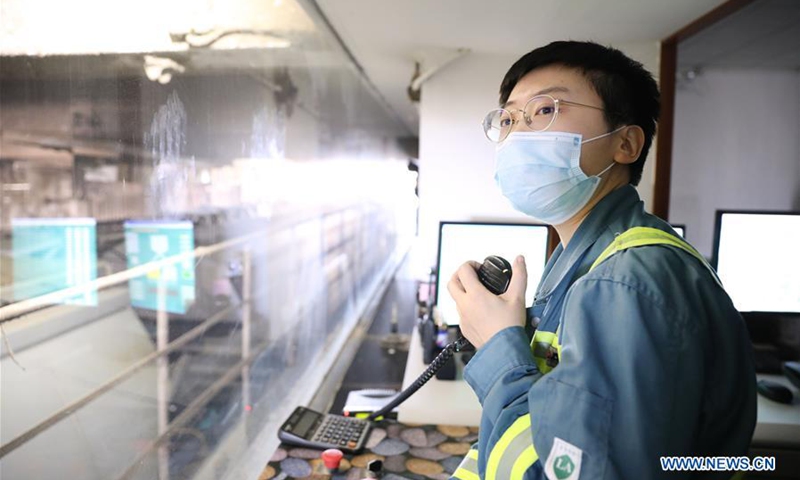COVID-19 outbreaks in Wuhan, Beijing and Dalian ‘share similarities:’ China’s top epidemiologist
By Liu Caiyu Source: Global Times Published: 2020/7/30 18:48:27

A staff member works at the grain section of Dalian port in Dalian, Northeast China's Liaoning Province, April 8, 2020. Photo: Xinhua
China's top epidemiologist said the recent COVID-19 outbreaks in Wuhan, Beijing and Dalian share certain similarities and did not come about by coincidence, as they all took place in the cold contaminated environment of seafood markets, and the virus may have infected people through aerosols.
Agricultural food markets' humid and low-temperature environment is more conducive for the novel coronavirus to survive, said Wu Zunyou, chief epidemiologist of the Chinese Center for Disease Control and Prevention, in an interview on Wednesday. As long as there is contamination, the virus can become concentrated and will not easily be inactivated, which will cause the virus to spread, Wu said.
Amid concerns over the spread of the novel coronavirus in food markets, China's National Health Commission (NHC) said on Thursday that surveillance of large-scale agricultural food markets will be intensified, especially stalls that sell frozen meat and seafood, and markets with humid and enclosed environments.
The novel coronavirus samples will be collected from clothes, sewage, product surfaces and animals. Aerosol samples in places where people gather will also be collected, the NHC said.
"It is of great significance to trace the source of the virus and prevent and control the epidemic," the NHC said.
Yang Zhanqiu, a deputy director of the pathogen biology department at Wuhan University, told the Global Times that risks of contaminated frozen products spreading the virus to people are pretty high, as the virus could spread through aerosols or by direct contact.
The virus could remain active in cold temperatures, though there lacks evidence to show the virus could spread through food.
An experiment carried out in Beijing's Xinfadi market, in which a fluorescent powder was used to simulate the virus, showed that if the environment was contaminated, the virus could infect people through aerosols, Wu said. Workers would then pollute the environment after becoming infected, forming a mixed transmission mode.
Chinese cities, including Beijing and Shanghai have adopted measures to tighten food safety screening.
Shanghai requires meat processing plants to obtain nucleic acid tests and disinfect food packages before stocking them in warehouses.
Beijing vowed to standardize the regulation of frozen products entering market and build a closed-loop traceability management system for frozen products. As of Thursday, Beijing has tested 86,900 samples relating to frozen food products, warehouses environments and people, with all results coming back negative.
To curb the spread of the novel coronavirus in humid environments, Wu suggested that places such as seafood markets should get adequate ventilation, which will help lower the risk of infection.
Yang reminded the public not to overreact over food safety. "As long as the food has passed nucleic acid tests and is well-cooked before eating, there is no chance that frozen food itself could spread virus to people."
On Thursday, Dalian reported five domestic confirmed patients, four of whom were asymptomatic. At the same time, Beijing also reported one confirmed case relating to Dalian, said the NHC.
However, Wu said the regional epidemic in Dalian has no specific connection with the outbreak in Beijing, adding that there is a larger possibility that the epidemic in Dalian was caused by contaminated imported seafood.
The local government said Wednesday that most confirmed patients are employees of Dalian Kaiyang Seafood Company or their close contacts.
Dalian has essentially prevented the COVID-19 outbreak from spreading, and believes there will not be a larger scale epidemic in the city. Many patients were found before they even showed any symptoms, and as the current new confirmed cases are asymptomatic, they do not pose a risk to society, Wu said.
RELATED ARTICLES:
Posted in: SOCIETY,CHINA FOCUS